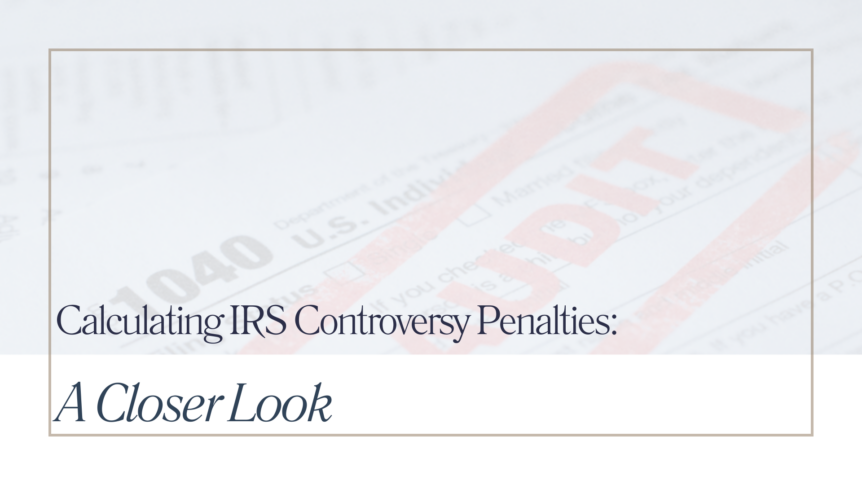
Calculating IRS Controversy Penalties: A Closer Look
Navigating the intricate landscape of tax regulations is a challenging task for individuals and businesses alike. The Internal Revenue Service (IRS) plays a crucial role in enforcing tax laws, and taxpayers may find themselves in the midst of controversy due to discrepancies in reporting, audits, or other issues. Understanding the penalties imposed by the IRS in such situations is essential for taxpayers to navigate these challenges successfully. In this blog post, we will take a closer look at how IRS controversy penalties are calculated and the factors that contribute to their determination.
Types of Controversies
Before delving into the penalties, it’s important to understand the various types of controversies that can arise with the IRS. These may include issues related to income reporting, deductions, credits, or other aspects of tax filings. Audits, examinations, and investigations can trigger these controversies, leading to potential penalties if discrepancies are found.
Calculation of IRS Controversy Penalties
Accuracy-Related Penalties: One of the most common types of penalties is accuracy-related penalties. These penalties are imposed when a taxpayer understates their tax liability due to negligence, substantial understatement, or other specified reasons. The penalty is generally calculated as a percentage of the underpayment resulting from the error.
Failure-to-Pay Penalties: If a taxpayer fails to pay their taxes by the due date, the IRS may impose a failure-to-pay penalty. This penalty accrues on the unpaid tax amount and increases over time until the balance is settled.
Failure-to-File Penalties: Another critical penalty is the failure-to-file penalty. This is imposed when a taxpayer doesn’t file their tax return by the due date, including extensions. The penalty is usually a percentage of the unpaid taxes for each month or part of a month that the return is late, with a maximum cap.
Fraud Penalties: In cases of intentional fraud or willful evasion of taxes, the IRS may impose fraud penalties. These penalties are severe and can amount to a substantial portion of the underpaid taxes. Cases involving tax fraud may be referred to the IRS Office of Criminal Investigations. These cases may involve the imposition of jail time.
Factors Influencing Penalties
Several factors can influence the calculation and imposition of IRS controversy penalties. These include:
Intent: Whether the taxpayer’s actions were intentional or the result of negligence can significantly impact the severity of the penalties.
Cooperation: The level of cooperation during IRS investigations and audits can also play a role. Willingness to provide requested documentation and information may mitigate penalties.
Correction of Errors: Promptly correcting errors once identified can demonstrate good faith and may influence the IRS’s decision on penalties.
Dealing with IRS controversies and the associated penalties is a complex process that requires careful consideration and expert guidance. Taxpayers facing such challenges should seek professional advice to navigate the complexities of tax laws and minimize potential penalties. Understanding the types of controversies, the calculation methods for penalties, and the factors influencing their imposition is crucial for individuals and businesses aiming to resolve IRS-related issues successfully. By staying informed and proactive, taxpayers can better manage their tax obligations and avoid unnecessary complications.
